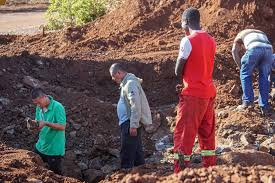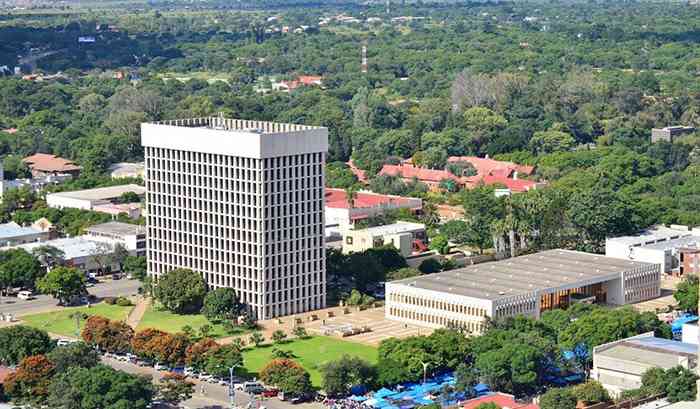
Zimbabwe's labour landscape presents a haunting paradox where constitutional guarantees and international commitments clash violently with the harsh realities faced by workers.
The systematic erosion of labour rights, coupled with deteriorating working conditions and suppressed wages, has created a workforce trapped between legal promises and practical despair.
The 2013 Constitution of Zimbabwe, in section 65, established a robust framework for workers' rights, guaranteeing fair labour practices, safe working conditions, and collective bargaining freedoms.
These constitutional provisions, alongside Zimbabwe's commitment to the International Labour Organisation (ILO) conventions and the African Charter on Human and Peoples' Rights, should theoretically provide comprehensive worker protection. However, the implementation gap has grown into an unbridgeable chasm.
The mining sector stands as a stark testament to this failure. Fatal accidents have spiralled alarmingly, with deaths rising from 121 in 2021 to a devastating 237 in 2023. ZDAMWU general secretary Justice Chinhema's observation that “scores of workers have lost their lives in avoidable mine accidents” underscores the criminal negligence pervading the industry. Despite contributing 70% of foreign direct investment and 80% of exports, mine workers struggle with poverty wages, far below the US$600 living wage.
Chinese investments have introduced additional complexities to Zimbabwe's labour dynamics. While bringing much-needed capital, these investments have often been accompanied by deteriorating working conditions and environmental standards. Workers face what Chinhema describes as “urgent concerns around labour practices, safety standards and environmental degradation,” yet regulatory oversight remains weak and enforcement sporadic.
The informal sector, representing over 80% of Zimbabwe's workforce, exists in a regulatory vacuum. These workers face daily exploitation without access to basic protections or social security. The Zimbabwe Lawyers for Human Rights emphasises that informal workers remain “routinely excluded from occupational health and safety protection, social security schemes and legal redress”. This exclusion persists despite constitutional provisions guaranteeing universal labour rights, revealing a fundamental disconnect between legal frameworks and economic realities.
Trade union suppression has intensified, with recent arrests of University of Zimbabwe lecturers highlighting the criminalisation of legitimate labour activism. This systematic harassment of union leaders directly contradicts section 65 of the Constitution and violates international labour standards on freedom of association. Government's response to worker protests increasingly relies on force rather than dialogue, undermining the very essence of collective bargaining rights.
- Car hire caught in sungura euphoria
- Census in bumpy ride
- Zanu PF shifts into 2023 election mode
- Panicky Zanu PF in reset mode
Keep Reading
The Tripartite Negotiating Forum, established through the 2019 TNF Act, has proven ineffective in bridging the gap between workers' needs and government policy. While President Emmerson Mnangagwa speaks of "promoting effective social dialogue”, the forum lacks enforcement mechanisms and genuine commitment to worker welfare. Wage negotiations have resulted in insignificant increases that fail to match Zimbabwe's soaring inflation rates.
The National Social Security Authority's attempts to extend coverage to the informal sector have been hampered by bureaucratic inefficiencies and limited resources. This failure leaves millions of workers without basic social protection, contravening international labour standards and constitutional guarantees. The government's promised formalisation strategy remains largely theoretical, offering little practical benefit to vulnerable workers.
Foreign investors, particularly in the extractive sectors, operate with minimal accountability for labour violations. Despite contributing significantly to Zimbabwe's economy, these companies often disregard local hiring protocols, safety standards and fair wage requirements. The government's reluctance to enforce compliance has created a two-tier labour system where foreign capital dictates working conditions.
The labour crisis extends beyond individual sectors, reflecting a broader failure of governance and economic planning. Workers across industries face similar challenges: wage theft, unsafe conditions, limited social protection, and restricted union rights. The Crisis Coalition's statement that "Workers of Zimbabwe deserve a better alternative" reflects the urgent need for systemic reform.
Addressing these challenges requires comprehensive reform of labour legislation, strengthening enforcement mechanisms and expanding social protection systems. The Labour Act must align with constitutional provisions and international standards, while independent inspectorates need real power to penalise violations. Social dialogue must move beyond rhetoric to deliver tangible improvements in working conditions and wages.
Zimbabwe's workers have suffered for a long time and the continued acceptance of the status quo threatens to permanently entrench labour exploitation. The gap between legal frameworks and workplace realities cannot be bridged through incremental changes or empty promises.
Only through radical transformation of labour governance, enhanced worker protection and genuine commitment to enforcement can Zimbabwe begin to honour its constitutional and international obligations to its workforce.
- Lawrence Makamanzi is an independent researcher and analyst, passionately sharing his insights in a personal capacity. He is reachable at blmakamanzi@gmail.com or 0784318605.










